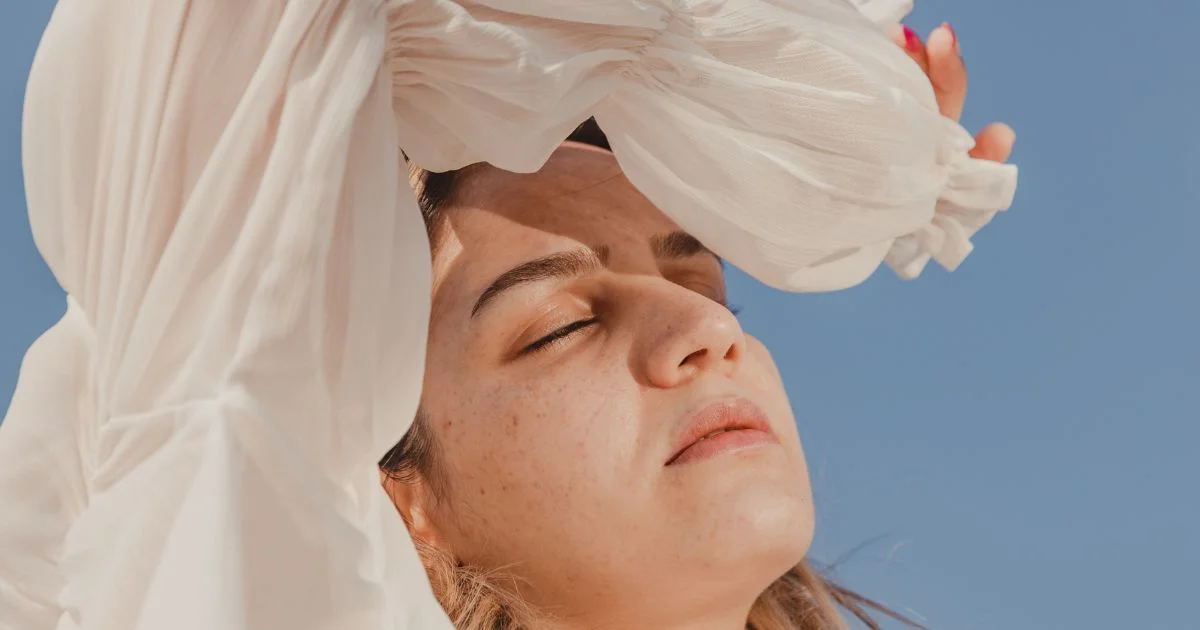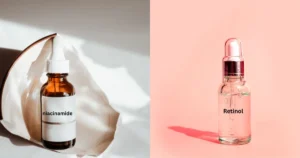How Long Does Sunburn Last: Understanding Duration and Recovery
Sunburn is a common condition that occurs when your skin is exposed to excessive ultraviolet (UV) radiation from the sun or artificial sources like tanning beds. It can cause discomfort, pain, redness, and even blistering in severe cases. If you’ve experienced sunburn, you may be wondering how long it will last and what steps you can take to promote healing. In this article, we’ll explore the duration of sunburn and provide essential tips for a speedy recovery.
 Understanding Sunburn
Understanding Sunburn
Sunburn occurs when your skin is exposed to UV radiation, primarily from the sun. UV rays can damage the DNA in your skin cells, triggering an inflammatory response that leads to the visible signs of sunburn. While the severity of sunburn can vary, it’s crucial to understand how long it typically lasts to gauge the extent of your condition.
You may also like.20 Home Remedies for clear skin overnight Common Signs of Acidity in the Body You Should not Ignore
Factors Affecting Sunburn Duration
The duration of sunburn depends on several factors, including the intensity of UV radiation, your skin type, the amount of exposed skin, and the level of protection you had during sun exposure. Additionally, certain medications and underlying medical conditions can affect the healing process.
Mild Sunburn: Short-Term Effects and Recovery
Mild sunburn typically lasts for about 3 to 5 days. During this time, you may experience redness, tenderness, and mild pain. The affected area may also feel warm to the touch. To promote healing, it’s essential to keep the skin moisturized, avoid further sun exposure, and take over-the-counter pain relievers if necessary.
Moderate Sunburn: Prolonged Healing Process
Moderate sunburn involves more significant damage to the skin and may last up to a week or more. In addition to the symptoms of mild sunburn, moderate cases can cause swelling, blistering, and peeling. It’s crucial to continue moisturizing the affected area, avoid sun exposure, and consider using topical treatments recommended by healthcare professionals.
Severe Sunburn: Potential Complications and Care
Severe sunburn, also known as sun poisoning, can last for several weeks. It requires prompt medical attention, as it can lead to complications such as infection and dehydration. Severe cases may exhibit symptoms like intense pain, extensive blistering, fever, chills, and dizziness. Medical professionals may prescribe medications and provide specialized care to promote healing.
Effective Home Remedies for Sunburn Relief
Alongside medical treatments, several home remedies can help alleviate sunburn symptoms and promote recovery.
- Cool Compresses: Apply a cool, damp cloth or towel to the affected area to soothe sunburned skin. Avoid using ice directly on the skin as it can cause further damage.
- Aloe Vera Gel: Aloe vera has natural anti-inflammatory properties that can help reduce redness and pain. Apply fresh aloe vera gel or a gel-based product containing aloe vera to the sunburned area.
- Oatmeal Baths: Taking a cool bath with colloidal oatmeal can provide relief for sunburned skin. The oatmeal helps to moisturize and calm the skin, reducing itchiness and inflammation.
- Cold Milk Compress: Soak a cloth in cold milk and gently apply it to the sunburned area. The proteins and fat in milk can help soothe the skin and promote healing.
- Witch Hazel: Witch hazel is a natural astringent that can provide relief from sunburn. Apply witch hazel to a cotton pad and dab it onto the affected skin to reduce inflammation.
- Baking Soda Paste: Mix baking soda with water to create a paste and apply it gently to the sunburned area. Baking soda can help alleviate itching and inflammation.
- Coconut Oil: Apply coconut oil to sunburned skin to moisturize and nourish it. Coconut oil has soothing properties that can help relieve discomfort and promote healing.
- Cold Water or Chamomile Tea Compress: Soak a cloth in cold water or chamomile tea and apply it to the sunburned area. Chamomile has anti-inflammatory properties that can help reduce redness and pain.
- Hydration: Drink plenty of water to stay hydrated from the inside out. Sunburn can dehydrate the body, so it’s essential to replenish fluids to support the healing process.
- Vitamin E: Break open a vitamin E capsule and apply the oil directly to the sunburned skin. Vitamin E can help moisturize and nourish the skin, promoting healing.
It’s essential to remember that home remedies should complement, not replace, professional medical advice.
Over-the-Counter Treatments for Sunburn
Pharmacies offer various over-the-counter treatments specifically designed for sunburn relief. These can include pain relievers like ibuprofen, topical creams with ingredients like hydrocortisone or lidocaine, and moisturizing lotions. It’s advisable to consult a pharmacist or healthcare professional to select the most suitable options for your specific needs.
Professional Medical Assistance
If your sunburn is severe or accompanied by intense pain, fever, or other concerning symptoms, seeking professional medical assistance is crucial. Healthcare professionals can evaluate the extent of the burn, provide appropriate treatment, and offer advice on managing the discomfort during the healing process.
Preventive Measures: Protecting Your Skin
Prevention is key to avoiding sunburn. By following a few simple measures, you can protect your skin from harmful UV radiation. These include seeking shade during peak sun hours, wearing protective clothing, using broad-spectrum sunscreen with a high SPF, and wearing sunglasses to shield your eyes from UV rays.
The Importance of Sunscreen
Applying sunscreen is one of the most effective ways to prevent sunburn. Choose a broad-spectrum sunscreen with an SPF of 30 or higher, and remember to reapply it every two hours or after swimming or sweating. Sunscreen forms a protective barrier on the skin, reducing the risk of UV damage.
Hydration and Nutrition for Sunburn Recovery
Proper hydration and nutrition play a significant role in supporting sunburn recovery. Drink plenty of water to stay hydrated and replenish electrolytes lost through sweating. Additionally, consume foods rich in antioxidants, vitamins C and E, and omega-3 fatty acids to aid the healing process.
Clothing Choices for Sunburned Skin
When you have sunburned skin, choosing the right clothing can make a difference in your comfort level. Opt for loose-fitting, lightweight garments made from breathable fabrics like cotton. Avoid tight or abrasive clothing that can irritate the burned area.
Sunburn Myth Debunked: Does Peeling Mean Healing?
A common misconception is that peeling skin signifies healing. However, peeling is the body’s way of shedding damaged skin layers. It’s crucial not to pick or peel the skin forcefully, as it can lead to infection and scarring. Allow the peeling process to occur naturally and continue providing gentle care to the affected area.
When to Seek Medical Attention for Sunburn
While most cases of sunburn can be treated at home, certain situations warrant medical attention. Seek immediate help if you experience severe pain, widespread blistering, signs of infection, or symptoms like nausea, vomiting, or confusion. Additionally, infants, young children, and individuals with pre-existing medical conditions should consult a healthcare professional for proper evaluation and guidance.
Conclusion
Sunburn is a common condition that can range from mild discomfort to severe complications. By understanding the duration and stages of sunburn, you can better manage the healing process. Remember to protect your skin, practice sun safety, and seek medical assistance when necessary. With proper care and prevention, you can recover from sunburn and enjoy healthy, radiant skin.
FAQs
How long does sunburn last on average?
The duration of sunburn varies depending on its severity. Mild sunburn typically lasts for about 3 to 5 days, while moderate cases can last up to a week or more. Severe sunburn may persist for several weeks and requires medical attention.
Can sunburn go away on its own without treatment?
Mild sunburn can often resolve on its own with proper care and time. However, severe sunburn and cases accompanied by concerning symptoms should be evaluated and treated by a healthcare professional.
Can I use ice to relieve sunburn pain?
While ice may provide temporary relief, it's generally not recommended for sunburn as it can potentially damage the skin further. Cool compresses or a cool bath are safer alternatives to soothe sunburned skin.
Is it safe to apply petroleum jelly to sunburned skin?
Petroleum jelly can help moisturize the skin and prevent excessive dryness, but it may not be suitable for all individuals or all stages of sunburn. Consult a healthcare professional or pharmacist for appropriate moisturizer options.
How can I prevent sunburn in the future?
To prevent sunburn, seek shade during peak sun hours, wear protective clothing, use broad-spectrum sunscreen with a high SPF, and wear sunglasses. Remember to reapply sunscreen regularly, especially after swimming or sweating.


 Understanding Sunburn
Understanding Sunburn

